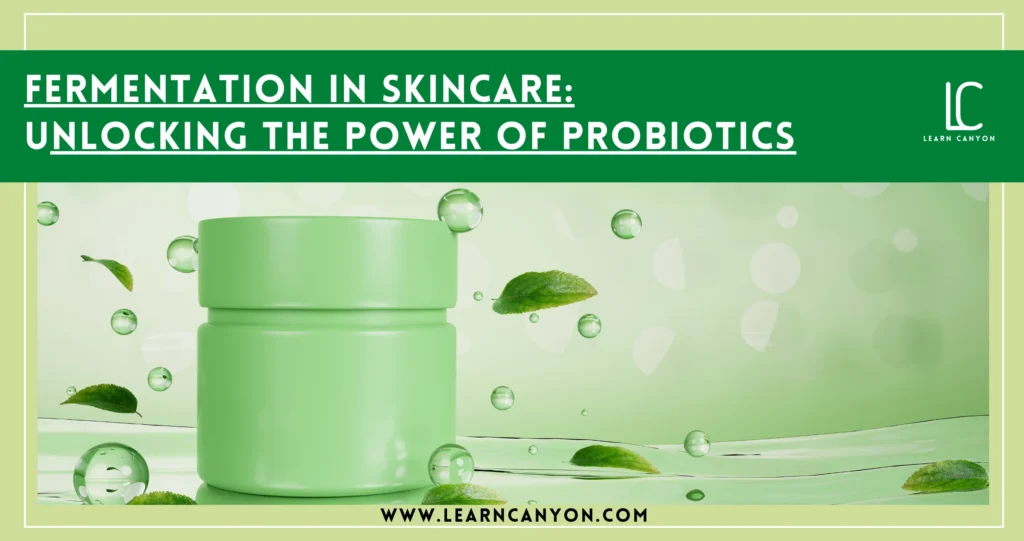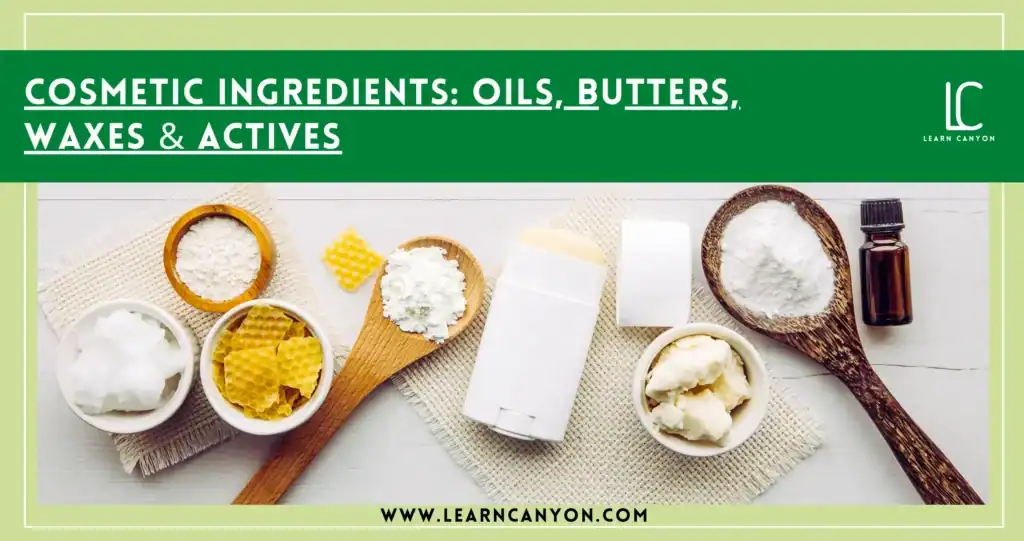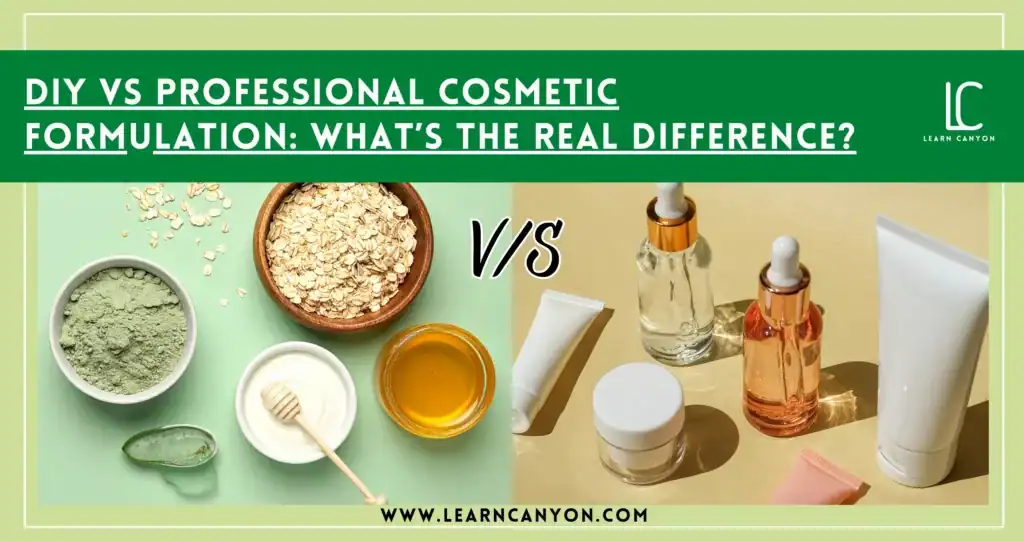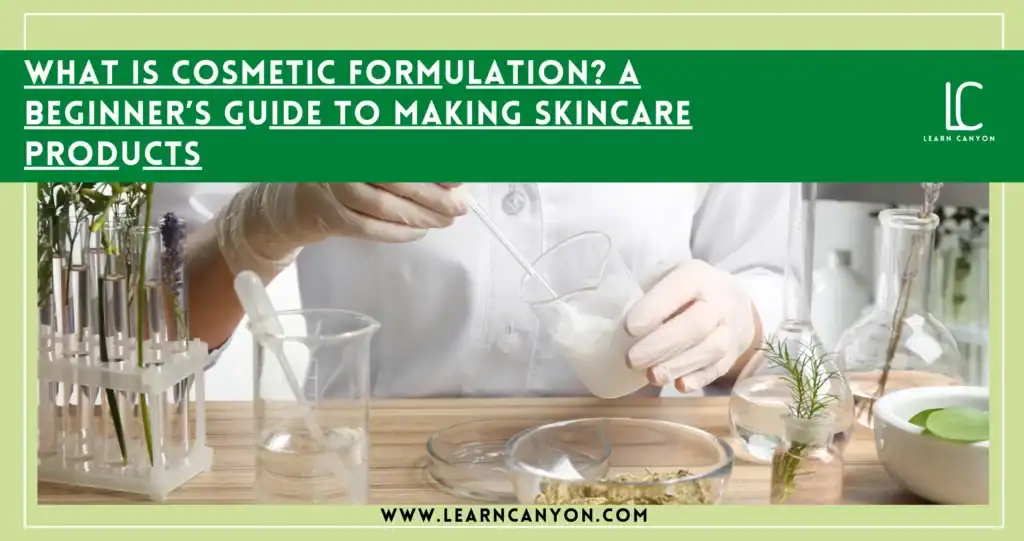Do people have any idea about FERMENTATION in the cosmetic industry?
Or is this just a fad?
Are they even science-backed?
I swear all they know is FERMENTED foods but not the other way around. We all know that fermented foods are good for our gut but fail to realise that fermented ingredients contain the same beneficial bacteria that can add immense benefits to our skincare routine.
Now let’s try to understand,
On the base level, fermentation in skincare is an exciting and transformational area in cosmetic formulation. It entails using microbes to develop powerful compounds that transform skincare and beauty products. Cosmetic formulators are at the core of this innovation, finding fermentation’s immense possibilities.
Natural compounds such as plant extracts, yeasts, or bacteria can be fermented to reveal many skin advantages. These bioactive substances may enhance skin health, and texture, and treat a variety of concerns, including ageing and hydration.
Fermentation also meets the growing desire for clean and natural beauty remedies. It takes a sustainable and eco-friendly approach, which appeals to people desiring ethical and environmentally conscious skincare alternatives.
These probiotics are beneficial bacteria that can help balance the skin’s microbiome and improve its overall health. Incorporating probiotics into skincare products, such as yoghurt, kefir, or kombucha, can help support the skin’s barrier function and reduce inflammation.
Understanding the benefits of fermentation in skincare can provide valuable insights into how probiotics can be utilized to unlock the full potential of skincare products.
Understanding Fermentation And Probiotics In Skincare
Fermentation is an enzyme reaction that causes chemical changes in organic compounds through the activity of enzymes.
In biochemistry, it is defined generically as the removal of energy from carbohydrates in the absence of oxygen. In food production, this can refer to any procedure in which the action of microbes causes a desired alteration to a food or beverage. The scientific study of fermentation is called zymology.
Fermentation is the principal method by which microbes produce adenosine triphosphate (ATP) through the anaerobic breakdown of organic materials. The fermentation process has been utilised by humans to generate food and beverages since the Neolithic period.
Fermentation In The Skincare Industry
We all know how fermented foods nourish and populate our gut microbiome, and studies have also demonstrated that they benefit our health in a variety of ways, including boosting immunity and reducing depression.
However, our SKIN also has its microbiome. This is a group of healthy and useful bacteria that dwell on and within your skin. These improve our total health, not just our skin!
In reality, your skin is your body’s first line of protection against many hazardous microorganisms. A healthy skin microbiota is essential. The best-fermented cosmetics are said to provide nutrition and populate your skin’s microbiota, similar to how probiotics enrich your gut bacteria.
As an illustration, cabbage undergoes fermentation in salt to make kimchi, while grapes are fermented with yeast to make wine. Fermented skin treatment follows a similar procedure, with specific substances fermented to promote microbial development.
Fermented skincare products are entirely natural, sourced from nature. However, this does not imply that they are organic. Fermented mushrooms are a popular fermented skincare product, known for their inherent anti-inflammatory properties as well as their antioxidant capacity. Rice and ginseng root are two more fermented components commonly used in skincare.
When it is about your gut microbiome, diversity is key; a diverse microbiome provides the best benefits. This is most likely accurate for your skin.
That’s why there is something called Skincare Fermentation. It’s a procedure to create fermented skincare products
- Skincare fermentation is a technique that uses the strength of beneficial microbes to turn natural materials into effective skincare solutions. This procedure is commonly used in skincare with botanicals, fruits, and other natural components. During the process of fermentation, these substances undergo biochemical alterations, resulting in a strong combination rich in SKIN-LOVING properties.
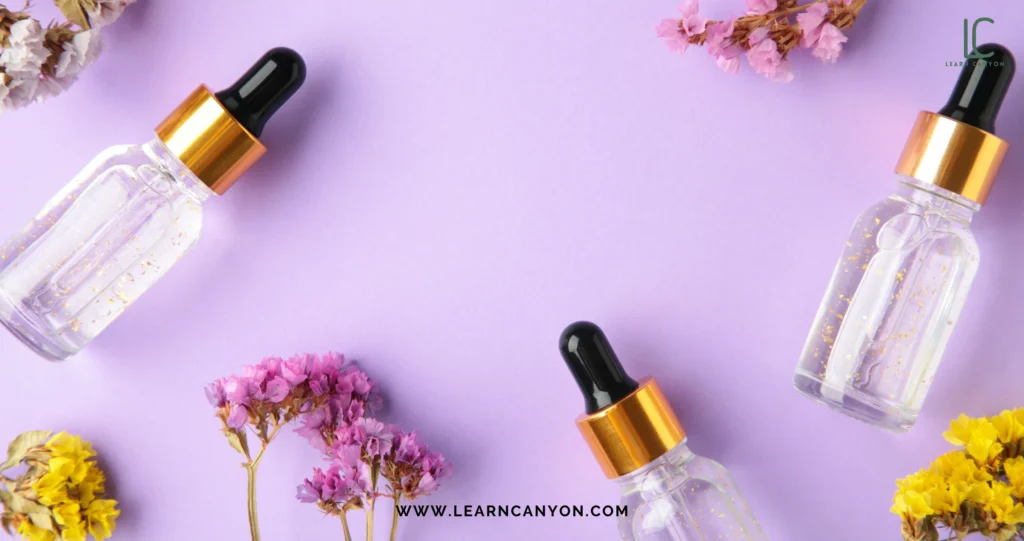
Probiotics In The Skincare Industry
Probiotics are microbes found naturally in and on the body that have an essential effect on skin health and appearance. While probiotics are widely used in the food and supplement industries, employing them for skin (i.e., topically) is a new and exciting field.
The purpose of probiotics in cosmetics is to assist in repairing the delicate balance that allows healthy bacteria to thrive, allowing the skin to maintain its optimal health. It isn’t as simple as purchasing any “probiotic cream” on the market. To fully gain the benefits of probiotics in skin care, essential formulation challenges must be addressed.
Probiotics are currently being used in many conventional skincare products. Face creams, moisturising lotions, tonics, body washes, hair products, and beauty masks are examples of cosmetics that contain cell wall fragments and harmless bacteria. Because live bacteria aren’t found in cosmetics, some companies create probiotic skincare items that contain some probiotics.
A few individuals will include prebiotics (probiotic “food,” such as oligosaccharides, galactose oligosaccharides, and fructooligosaccharides), which may hinder pathogenic bacteria from adapting the composition of the skin microbiome while promoting the growth of beneficial bacteria. Other individuals will add bacteriocin (the “active items” of probiotics and compounds, such as lactobacillus fermentation products and yeast fermentation product extracts) to skin cosmetics to help the skin rebalance its micro-ecological balance due to its small molecules, strong stability, high-temperature resistance, acid and alkaline opposition, and acid and alkaline resistance.
Probiotic extracts are becoming increasingly popular in cosmetics, with lactobacillus being the most common component. There has been evidence that specific probiotic strains may enhance epithelial and epidermal barrier function. The latter is crucial to skin function and a common focus for creating consumer-friendly promises.
If strains used in cosmetics enhance barrier function, then certain tests can be conducted to prove it. Researchers from many well-known cosmetic companies have demonstrated that a lysate from the probiotic Bifidobacterium longum reuter strain may decrease vasodilation, oedema, mast cell degranulation, and TNF-alpha release, and using trans-epidermal water loss to assess barrier function, showed advancement with the application of the lysate-containing product.
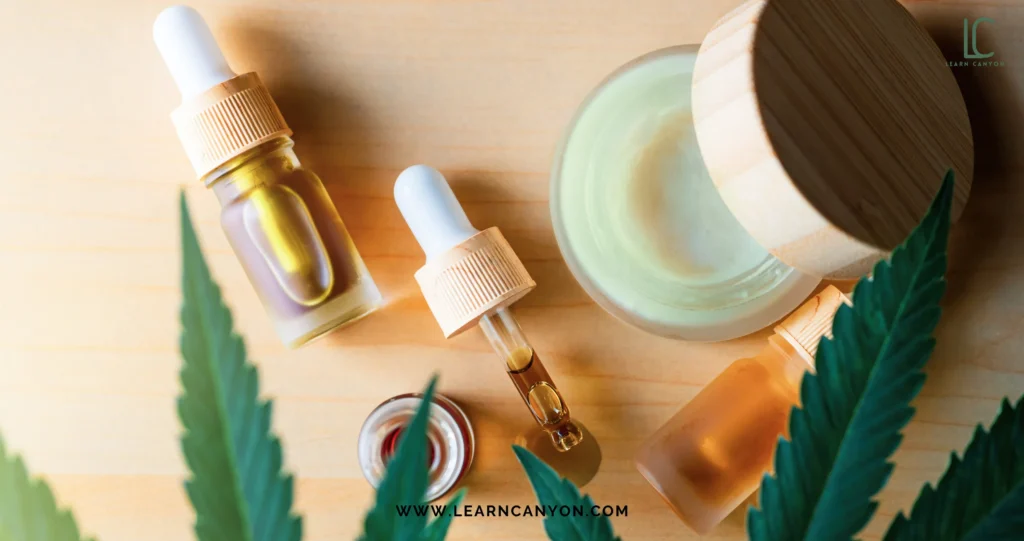
Benefits Of Fermented Ingredients In Skincare
There are five major key benefits of fermented ingredients in skincare.
- Absorption Of Fermented Ingredients Is More Easy on Skin
Fermented ingredients in skincare decrease down to the size of microscopic micelles, allowing them to act deep within the body rather than just on the outermost layers. Some skincare experts agree that the microorganisms and enzymes included during fermentation in the Active Treatment Essence method tear these atoms down into smaller sizes that can easily permeate the skin, providing the benefits of each component deep inside the dermis.
- Fermented Ingredients Aids the Skin in Managing Inflammation
Fermented ingredients in skincare can also improve your skin’s ability to respond to inflammation by building its protective barrier. A thicker skin barrier provides better defence against irritants that irritate. This characteristic is especially beneficial for people who have skin diseases that cause a compromised skin barrier, such as eczema or atopic dermatitis.
- Fermented skincare ingredients may help lessen your skin’s irritation and sensitivity
If you have eczema or psoriasis, you are aware of how easily your skin can become irritated. When it becomes itchy and sensitive, it can be tough to settle it down quickly. Fermented substances can be useful in this situation. They calm and soothe because of their ‘fermented nature.’ Furthermore, fermented skincare may help soothe acne-related redness, provided the product is non-comedogenic and does not clog pores.
- Fermented skincare serves as a natural substitute for chemical surfactants
Chemical surfactants are commonly used in skincare products, however, they can irritate and pose health risks. Fermented skincare products, particularly biosurfactants, are an effective approach to minimising synthetic surfactants on your skin. Furthermore, research reveals that fermented biosurfactants can have antimicrobial characteristics, allowing your cosmetics to stay fresh and potent for longer.
- Fermented Ingredients In Skincare Elevates Nutritional Impact
Fermentation is the reason why wine has been demonstrated to have more antioxidant activity than grape juice. Likewise, fermentation improves the nutritional richness and efficacy of the existing potent components in the Active Treatment Essence method. After fermentation, many of the compounds in that particular cosmetic formulation become more concentrated in skin-benefiting vitamins and exfoliating enzymes.
- Fermented Skincare reduces the Indications of Ageing
One of the greatest benefits of fermented ingredients in skincare is they help prevent outward indications of ageing. This is because they possess more fatty acids, such as omega-3s and omega-6s, which are essential components of healthy cell membranes.
- Fermented Skincare Ingredients Introduces new skin saviours
The process of fermentation can also increase natural ceramide formation in the skin, assisting in strengthening the skin barrier and sealing in important hydration. Also maintaining the healthy PH of the skin.
The Science Behind Fermented Skincare
Discovering the science of fermentation explains why it is a game-breaker in skincare. Fermentation is a revolutionary process in which beneficial bacteria break down organic foods, releasing strong nutrients and bioactive chemicals. This enzymatic activity boosts the efficiency of skincare components, allowing them to be more easily absorbed by the skin.
Furthermore, fermentation generates residues such as amino acids and peptides, replenishing and rejuvenating the skin from within. These amino acids function as superheroes, moisturising the skin with hyaluronic acid while fostering a balanced pH environment where healthy bacteria can thrive.
Furthermore, fermentation creates probiotics and prebiotics, which help regulate the skin’s microbiota and create a healthy environment for proper skin performance.
This dynamic process guarantees that every use of fermented skincare is a step forward to obtaining glowing, healthy-looking skin.
For women who appreciate evidence-based cosmetics, the data demonstrating the benefits of fermented skincare is convincing. Multiple investigations have shown that it improves skin hydration, texture, and appearance.
For example, studies have shown that fermented components such as rice extract help brighten the skin and lessen the appearance of dark spots. Furthermore, clinical research has demonstrated the anti-ageing properties of fermented skincare, with participants experiencing tighter, smoother skin over time. These findings highlight the transforming power of fermented formulations, giving women the confidence to put money into products that produce measurable outcomes.
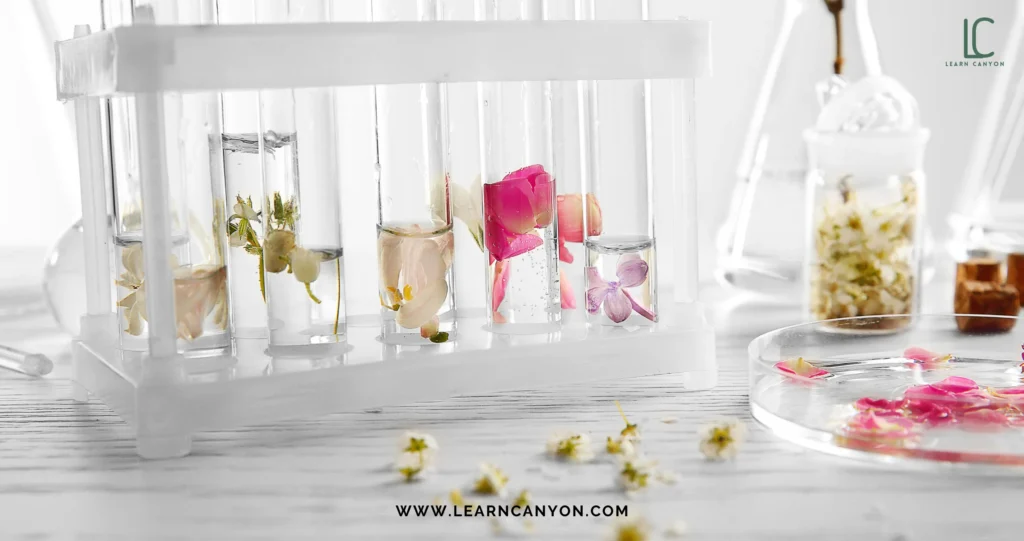
Common Fermented Ingredients In Skincare
- The most common fermented or probiotic skincare ingredients implemented in the cosmetic industry are ingredients, such as yeast extracts, lactobacillus, and bifidobacterium.
- Kombucha as well as other fermented teas are popular additions to creams, serums, and essences because of their anti-inflammatory and anti-ageing qualities.
- According to a study published in the Journal of Medicinal Food, fermented red ginseng improves blood circulation and skin nourishment.
- Fermented rice bran additionally serves as a proven component, with one study demonstrating anti-ageing, brightening, and moisturising properties.
- According to other cosmetic experts, other popular fermented substances include honey, milk, fruits (such as grape, pear, and pomegranate), algae, collagen, soy, turmeric, oils, minerals and metals, and salts are used in formulation to prepare various fermented skincare products based on specific skin conditions.
Probiotic Strains Used In the Cosmetic Industry
Probiotics in cosmetics have shown their full efficiency on the skin barrier only because of the type of probiotic strains that were included in the formulation. There are various microbial and yeast strains used in skincare products and each one caters to different skincare needs.
The below table shows that data was acquired from many cosmetic items advertised by major cosmetics brands in the world where it highlights the incorporation of various probiotic strains. “Bifida ferment lysate” refers to a lysate of Bifidobacterium longum Reuter, shown in the table. And, Lactobacillus ferment in skincare products is the most commonly used.
| TYPE OF PRODUCTS | PROBIOTIC STRAINS / FERMENTED INGREDIENTS |
| Skincare or Topical Balms | Lactococcus ferment lysate ,Lactobacillus ferment |
| Face and Body Cleansers | Bifida ferment lysate, Lactobacillus ferment, Bifida ferment lysate. |
Body Creams, Night Creams & Moisturizers | Lactobacillus ferment, Lactococcus ferment lysate, Bifida ferment lysate *, Lactobacillus, Streptococcus thermophilus ferment, Bacillus coagulans, Lactobacillus ferment |
| Deodorant | Saccharomyces ferment filtrate |
| Make-Up Products / Foundation | Lactobacillus ferment, Lactobacillus, Lactococcus ferment lysate |
| Body & Face Gels | Lactobacillus, Lactococcus ferment extract, Leuconostoc ferment filtrate, Lactococcus ferment lysate, Lactobacillus, Greek yogurt, yogurt, yogurt powder |
| Face & Hair Masks | Lactobacillus, Greek yoghurt, yoghurt, yoghurt powder, Bifida ferment lysate, Lactococcus ferment lysate, Lactococcus ferment lysate, Streptococcus thermophilus ferment |
| Face & Body Exfoliant | Lactobacillus ferment, Lactococcus ferment lysate, Leuconostoc ferment filtrate, Saccharomyces ferment filtrate, |
| Primer | Saccharomyces ferment filtrate |
| Serums (Face and Hair) | Lactobacillus ferment, Lactococcus ferment lysate, Bifida ferment lysate *, Lactobacillus, Streptococcus thermophilus ferment, Lactobacillus bulgaricus ferment filtrate, Lactobacillus ferment extract. |
| Skincare Lotions | Lactobacillus ferment, Lactococcus ferment lysate, Bifida ferment lysate *. |
Incorporating Probiotics/Fermented Ingredients In Cosmetic Formulations
- It is difficult for the cosmetic industry to develop topical solutions that maintain probiotic bacterial health from production to the supply chain and the consumer. Moisture allows dried microbes to hydrate and grow, or perish, hence oil-based FORMULATIONS are required.
The concern becomes how easily the organisms may emerge from the oil once applied to the skin and become metabolically active enough to provide the necessary probiotic effects. Because many creams are not manufactured under sterile conditions, stabilisers having bactericidal and/or bacteriostatic properties are frequently used. These could potentially affect not only the survival of the probiotic strain but also the recipient’s microbiome.
- Multiple probiotics and fermented ingredients have been studied for skin, acne, and other problems, but it is difficult to single out one as the most effective because everyone’s microbiota is unique. Instead, looking for a COSMETIC FORMULA that contains a variety of “biotic” substances (pre-, pro-, and post-) for a comprehensive approach to stabilising and maintaining the skin’s healthy microbiota.
It should be noted that only a few fermented skincare products include living bacteria. Including these makes no sense since the product’s preservative system (which is required to protect your skin and the recipe) renders them ineffective. A safe solution is to use probiotic lysates or ferments, which are non-living probiotic components that provide many of the same perks as live ones.
- Lactobacillus, Bifidobacterium, Vitreoscilla, and different ferments (AS DISCUSSED IN ABOVE TABLE) have all been shown to be effective fermented skincare ingredients.
- Prebiotic components include xylitol, rhamnose, glucomannan, and oligosaccharides.
- The hyaluronic acid, peptides, and ceramides mentioned above are excellent postbiotic-suitable substances that complement the benefits of probiotics for the skin.
- Lysate compounds are also useful for probiotic skin care. Lysates, which are probiotic derivatives, work together to strengthen the skin’s microbiota and reduce skin issues.
Thus, It is vital to note that probiotic lysates and ferments in skin care must be carefully formulated due to their inherent volatility. This includes avoiding jar packing (light and air cause it to degrade faster) and purchasing products from brands with a scientific grasp of how these components work. Search for probiotic lysates and ferments in fragrance-free formulas to maximise their calming effects.
Bottom line: Using the proper formulary strategies is vital to obtaining the most out of your probiotic skin care. To achieve the best benefits, search for a combination of “biotic” substances that can work together to benefit all skin types.
We discovered from a microbial cosmeceutical research paper, that strains like Lactobacillus ferment (preservative) and Saccharomyces ferment filtrate are used in cosmetic formulation according to their properties and the benefits they provide to the skin.
For instance, Lactobacillus ferment (preservative) acts as an ANTIMICROBIAL & SKIN CONDITIONING in a cosmetic FORMULATION, which is non-toxic and non-comedogenic. Its technical profile shows that; the PH of lactobacillus ferment is 4.0-5.0, soluble in water and has low viscosity.
Whereas, Saccharomyces ferment filtrate acts as ANTIOXIDANT & MOISTURIZING in a cosmetic FORMULATION, which is recommended to be used at a concentration of 0.1%-5% in leave-on skincare products and up to 10% in rinse-off cosmetic items. It is safe and vegan. Its technical profile shows highly soluble in water than lactobacillus and has a low viscosity.
Similarly, there are various concentration levels to be considered for other remaining probiotic strains and fermented ingredients before preparing an effective fermented cosmetic formulation, such as the recommended concentration for certain microbial ferment extracts is 3%, ferment filtrate is 10%, yoghurt is 10% and ferment lysate is 38%.
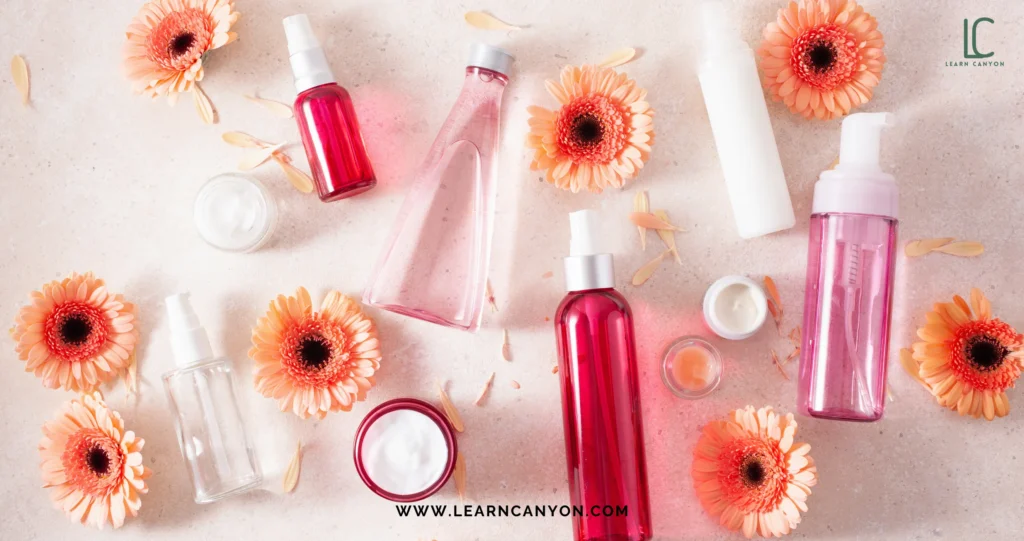
Latest Trends in the Probiotics In Cosmetics Market
- Customised Probiotic Treatments
The skincare market is becoming more personalised, and Probiotc or Fermented Skin Care Cosmetics are no surprise. Brands are experimenting with customised solutions that will allow customers to personalise their skincare routines to their specific skin needs. This trend allows consumers to tackle specific ailments while reaping the advantages of probiotics in formulations tailored to their skin needs.
- Technological Advances in Probiotic Strains
During continuous fermented ingredient research or probiotic research, several strains that have been shown to have positive benefits on the skin have been found. Companies are progressively incorporating highly effective probiotic strains into their compositions through technical advancements. As a consequence of this trend, probiotic skin care cosmetic products can provide customised solutions for concerns including inflammation, redness, and skin abnormalities.
- The increase of microbiome-friendly formulations.
One noticeable aspect of the Probiotic Skin Care Beauty Product Market is a focus on microbiome-friendly formulations. Skincare lovers are becoming aware of the symbiotic connection between the skin microbiome and general skin health. Probiotic formulas function in tandem with the skin’s natural bacteria, creating a balanced microbiome and strengthening the skin’s capacity to resist environmental triggers.
- Multifaceted Solutions for Streamlined Routines
The demand for enhanced skincare routines has led to the creation of multi-functional cosmetic products including probiotics for topical application. Consumers choose solutions with many advantages in a single composition, such as hydration, anti-ageing properties, and microbial support. This fashion trend provides a holistic approach to skincare while responding to the needs of those who live fast-paced lives.
- Educational and Awareness Campaigns
Educational campaigns are vitally noteworthy in the probiotic skincare cosmetic goods market. Brands are focusing on awareness initiatives to educate customers about the benefits of probiotics for skin health. With the aid of this trend, the science behind probiotics will become more understandable, allowing people to make more informed selections when purchasing skincare products.
Final Thoughts
From the above discussion, we understood how fermented ingredients or probiotics can be of great help to our skin microbiome on a large level, by diving deep into the world of science behind fermented ingredients in skincare, studying its benefits, the types of probiotic strains used in cosmetic formulations, the inclusion of prebiotics with the probiotics and postbiotics in formulation and analysing probiotic’s efficacy in cosmetic formulation according to their certain concentration.
Embracing fermentation as a comprehensive skincare solution represents a harmonious union of ancient wisdom and modern science. By utilising the transforming power of fermentation, cosmetics fans can gain a plethora of skin advantages, including improved absorption, microbiota balance, and more. As the future of skincare evolves, fermentation stands out as a natural, sustainable, and practical beauty solution, providing a route to healthier, more vibrant skin for all.
Although formulating with probiotics and fermented ingredients can be tough for some formulators, we at Learn Canyon make such challenging work much easier by offering our trainers our most advanced course on organic skincare and haircare formulations where we will show you high-tech strategies to include fermented ingredients in cosmetic formulations to create fermented skincare products efficiently.




